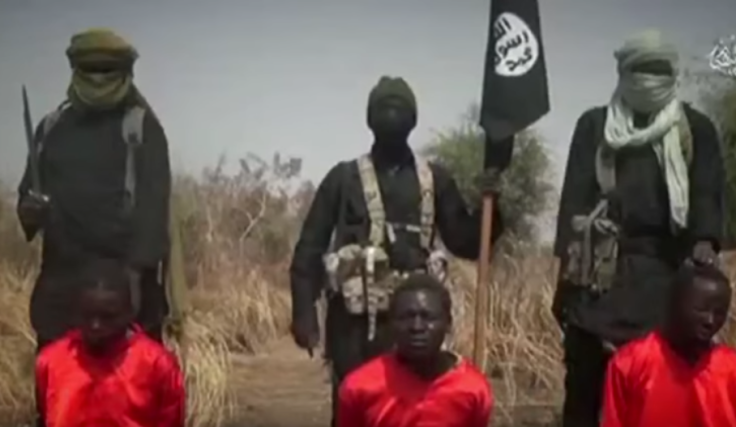Nigerian army 'ignored' information on Boko Haram attack days before deadly Magumeri raid
Military under scrutiny as Boko Haram resumes deadly attacks in restive northeast.
The Nigerian army has been accused of ignoring intelligence information on an attack being planned by Boko Haram terrorists, days before the militants eventually struck. Both the police and the state security department (SSS/DSS)claimed the army knew about the planned attack in Magumeri village, in the restive Borno state.
Boko Haram attacked the village with 45 vehicles and dozens of motorbikes on 15 March, killing at least two policemen and four soldiers. However, the government in Borno said the number of causalities could be higher.
"The Commanding officer, a Captain, invited me to his office in the morning of Wednesday, hours before the attack, asking for the details of the location where Boko Haram fighters were said to be assembling," the head of police Criminal Investigation Bureau (CIB) in Magumeri, Bello Haruna, was quoted by the Premium Times website as saying.
"I asked him to bring out the map from which I gave him all the necessary information about the terrorists' locations. But I am not sure if anything was done in response to that before the attackers came."
Similar remarks were made by the SSS representative in Magumeri, Tim Modalla, who alleged the army had ignored repeated warnings an attack would happen.
"As predicted on the 15<sup>th of March at about 5.30p.m, I was informed by a civilian-JTF that our town was about to be attacked. And I told him to quickly alert the Captain, and the Civilian-JTF Operative said he was at the military base four times to alert them of the attack," he said.
The army claimed the attack was possible because residents had "cooperated with Boko Haram."
Army spokesperson, Colonel Sani Usman told the Premium Times: "Our position on Magumeri is not an indictment on the whole society but those who have been conniving with terrorists know themselves. We have our own facts and we are investigating the issue. We implore the people to understand that they need to support the military and other security forces especially at this critical stage of the fight against insurgency and terrorism."
Is the fight against Boko Haram over?

Boko Haram used to control territories the size of Belgium. However, Nigeria's ongoing military operation, Lafiya Dole, and a regional offensive – consisting of 8,700 troops from Nigeria, Niger, Chad, Cameroon and Benin – have scored some success, with soldiers recapturing key territories and releasing thousands of civilians held captive by the group.
Last December, the army claimed it had stormed Boko Haram's last known stronghold in Sambisa Forest, in the restive Borno state. However, the group's contested leader, Abubakar Shekau, repeatedly denied claims the sect had been defeated.
Who are Nigeria's Boko Haram terrorists?
Boko Haram, which has renamed itself Iswap, fights against Western influence in Nigeria and aims to impose its version of Sharia law throughout occupied territories.
The group launches attacks in Nigeria and neighbouring countries in a bid to take control of more territory. Three Nigerian states − Adamawa, Borno and Yobe − have been under a state of emergency since May 2013.
Boko Haram has killed more than 20,000 people since 2009 and was deemed the world's deadliest terror group, surpassing Isis in November 2015. Nigeria has also become the world's third-most terrorised country as a result of the group's violent insurgency.
Analysts have pointed out that declaring a victory over the group is premature, given that Boko Haram is still carrying out deadly attacks.
Experts also warned that underlying issues such as disenfranchisement, poverty and strong links with Isis would continue to pose major threats to stability in the region.
Security analyst David Otto believes the latest string of attacks in Borno shows that Boko Haram rearmed, recruited more people and resumed attacks as soon as President Muhammadu Buhari returned to Nigeria after spending 51 days on medical leave in the UK.
"How is it possible that a group of 45 trucks accompanied by motorbikes travels for miles into attack targets and no one does anything to stop?" he said.
"This is a huge intelligence and surveillance failure on the part of the Nigerian government and all those countries assisting Nigeria in surveillance. The government of Nigeria must be held to account by fallen victims for failure to protect innocent and vulnerable citizens against Boko Haram attacks despite having information in good time. This is insecurity at its best," Otto concluded.
Nigeria up close: Check out our Flipboard magazine
© Copyright IBTimes 2025. All rights reserved.






















